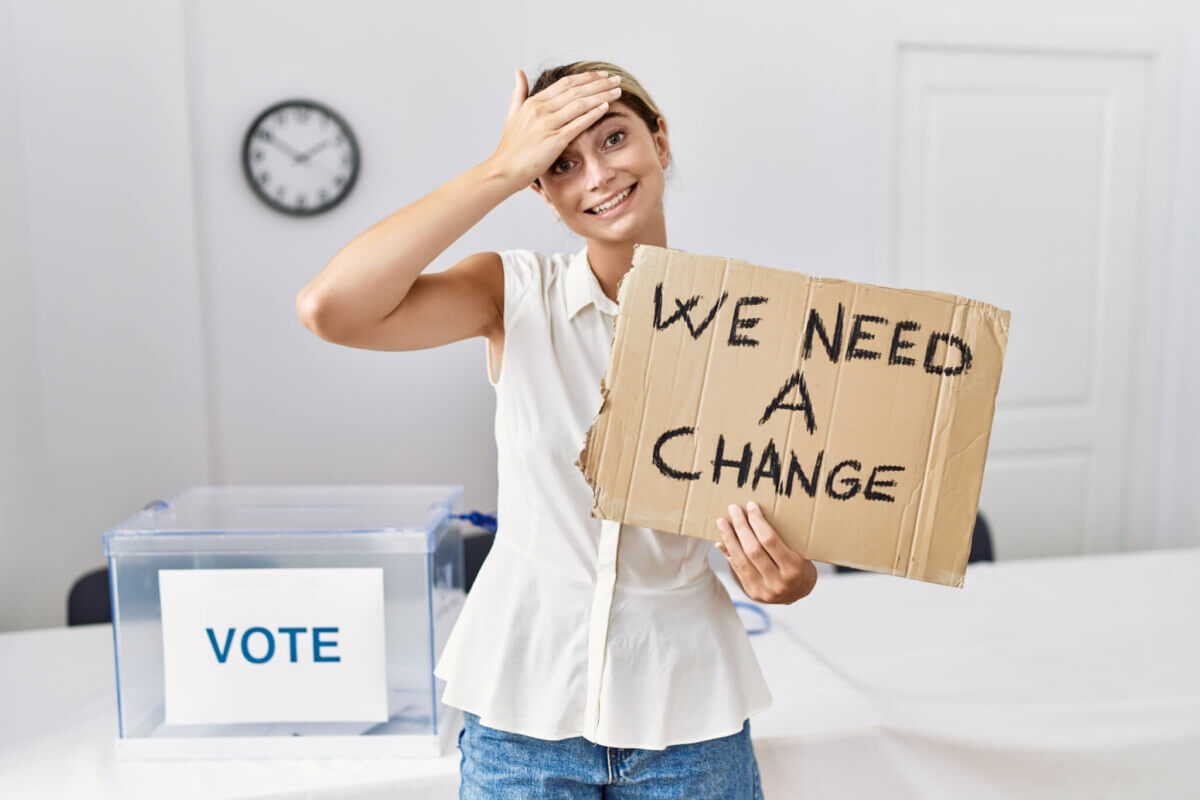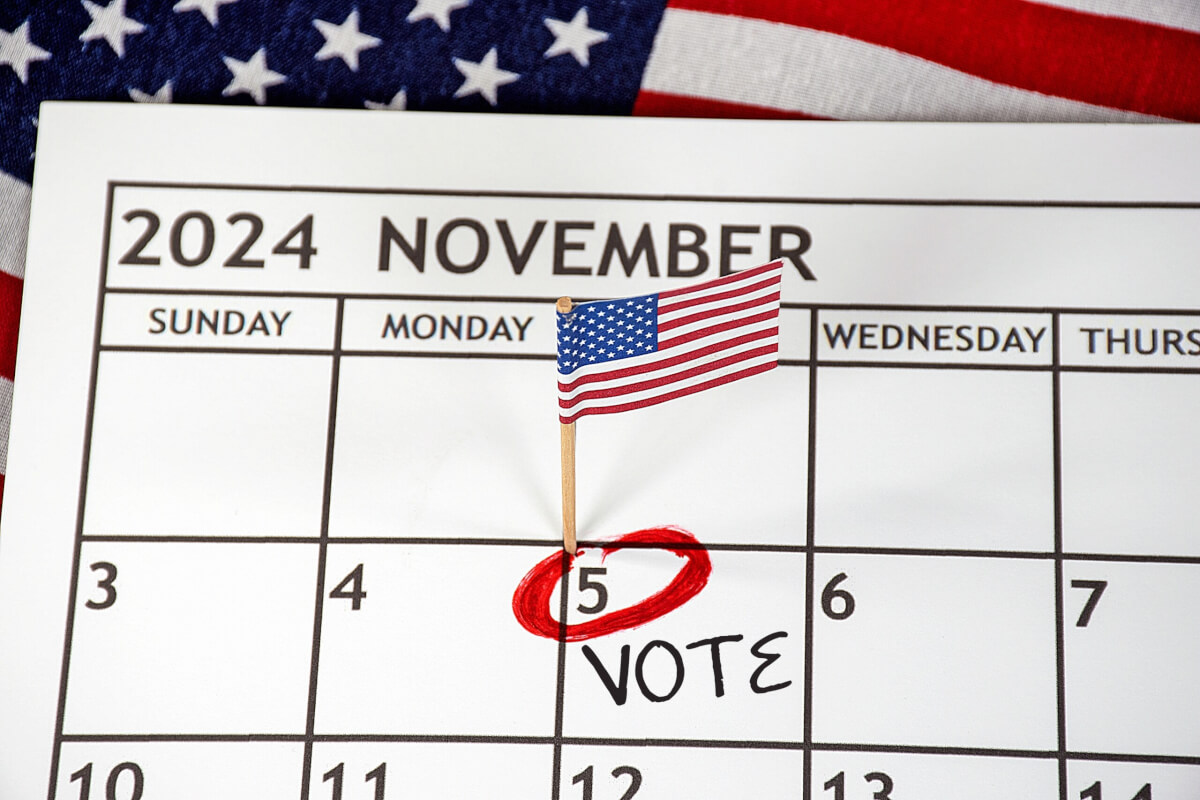
Young woman at political election holding we need a change banner (© Krakenimages.com - stock.adobe.com)
NEW YORK — Forget voting for a third party — more than one in three Americans want to vote for themselves in 2024! The new poll of 1,000 Americans found that 37% believe that they would make a better President of the United States than the current candidates. Those kinds of numbers might actually win an election in a three or four-candidate race.
The survey of 500 Democrats and 500 Republicans found that not only are Americans less than pleased with the candidates this election season, but the debate topics and important issues are also polarizing voters heading into November.
Conducted by Talker Research, the survey found that the rising cost of living (50%), inflation (49%), and immigration (38%) are the top three topics Americans want the candidates to debate. However, Democrats and Republicans are at odds over which topics are most important to them.
Although it ranked high on the list of overall debate topics, just 18% of Democrats say that immigration is important to them, compared to 51% of Republicans.
Party lines also continue to divide Americans over abortion and healthcare access — 45% of Democrats say this is important to them, ranking as the second most important issue only below the rising cost of living (51%). Only 15% of Republicans feel the same.
Democrats are also more interested in climate change than Republicans (29% vs. 7%), though global conflicts in Israel, Palestine, and Ukraine are only slightly more important to Democrats (18% vs. 13%).
On June 27, 2024, Joe Biden and Donald Trump will take the stage for the first presidential debate of the 2024 election season. Currently, Independent candidate Robert F. Kennedy Jr. is not scheduled to take part. Regardless, estimates show that three in five Americans (61%) will tune in.

The survey also looked more closely at the controversy and legal battles surrounding Donald Trump. On May 31, 2024, a New York jury convicted Trump of 34 felony counts of falsifying business records related to a hush money payment to adult film star Stormy Daniels ahead of the 2016 presidential election. Results found that three in 10 Americans (29%) believe that state laws should be changed to allow felons to vote in light of the conviction.
Divided once more, 56% of Democrats stand firmly against felons being allowed to vote. Meanwhile, 32% of Republicans were strongly in favor. Another 30% simply weren’t sure. Almost half of Americans (47%) believe that state laws that don’t allow felons to vote should remain in place, regardless of party affiliation.
According to the survey, two-thirds of Americans paid attention to the recent hush money trial; with 73% of Democrats tuning in, compared to 59% of Republicans. Now that a guilty verdict was handed out in New York, 47% of all respondents admit that they’re planning to pay more attention to the next trials involving the former president, though 16% of Republicans plan to give them less attention.
Survey methodology:
This random double-opt-in survey of 1,000 U.S. adults (500 Republicans and 500 Democrats) was commissioned between May 31 and June 1, 2024. It was conducted by market research company Talker Research, whose team members are members of the Market Research Society (MRS) and the European Society for Opinion and Marketing Research (ESOMAR).










